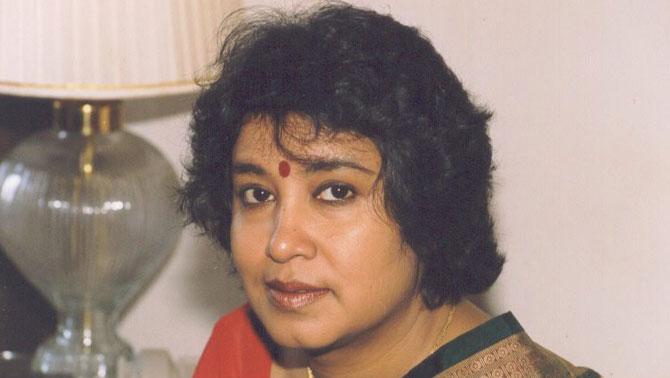Controversial Bangladeshi writer Taslima Nasreen's Facebook account was disabled after her posts were reported by Islamic fundamentalists
Kolkata: Controversial Bangladeshi writer Taslima Nasreen's Facebook account was disabled after her posts were reported by Islamic fundamentalists, the author said on Wednesday.
ADVERTISEMENT
Dubbing the move as "totally unacceptable", eminent writers raised doubts over Facebook's "open" nature and called for safeguards to be put in place.
 Taslima Nasreen
Taslima Nasreen
"Since Tuesday my Facebook account has been disabled. Despite several requests, the Facebook authorities have not revived my account. They have done it to pacify the Islamic fundamentalists who don't want me to share my thoughts on the social media," Nasreen told IANS from New Delhi.
The exiled writer slammed Facebook authorities for denying her the medium to interact with her readers.
"I am banned from entering Bangladesh and West Bengal; my readers can't access my writings because they too are banned. So, I was using Facebook as a media to connect with my readers. But even that is not being allowed."
"The Facebook authorities are not at all concerned with numerous fake accounts that exist on my name, but have all the reservations against my authentic account only to pacify Muslim fundamentalists who don't want me to share my thoughts," added Nasreen.
Nasreen, who incurred the ire of the fundamentalists and had to leave Bangladesh in 1998 after her novel "Lajja" (shame) hit the stands, said her account was deleted on several occasions earlier as well.
"While my account was revived after being disabled several times, but this time I have lost hope. Many of my writings have vanished," said the author whose Facebook profile under the name 'Nasreen Taslima' had more than a lakh followers.
Slamming the move, former Lalit Kala Akademi chairman Ashok Vajpeyi said it infringes upon the concept of freedom of expression.
"Anything that is done to prevent a writer, and that too of Nasreen's stature and position, is totally unacceptable and highly reactionary. It cuts into the very concept of freedom of expression and we must all raise our voice against it," Vajpeyi told IANS.
"They claim to be an open and social media, on the other hand they disable the account of an important writer," said the Sahitya Akademi awardee.
Hindi author Mridula Garg, too, echoed similar views.
"I would certainly say that it was wrong of Facebook to do it. You can't disable or close a profile because the voice is differing from your views."
"Writers survive because of their freedom of expression and Facebook is only one of the mediums for expressing this freedom. Some kind of safeguard should be provided so that it does not behave in an arbitrary and dictatorial manner," she told IANS.
Nasreen was one of the petitioners in a public interest litigation filed against the much-denounced Section 66A of the Information Technology Act. The Supreme Court on March 24 quashed the Section, finding it violative of the freedom of speech guaranteed by the Constitution.
 Subscribe today by clicking the link and stay updated with the latest news!" Click here!
Subscribe today by clicking the link and stay updated with the latest news!" Click here!






